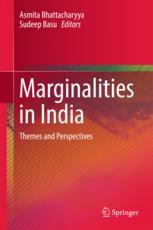

Most ebook files are in PDF format, so you can easily read them using various software such as Foxit Reader or directly on the Google Chrome browser.
Some ebook files are released by publishers in other formats such as .awz, .mobi, .epub, .fb2, etc. You may need to install specific software to read these formats on mobile/PC, such as Calibre.
Please read the tutorial at this link: https://ebookbell.com/faq
We offer FREE conversion to the popular formats you request; however, this may take some time. Therefore, right after payment, please email us, and we will try to provide the service as quickly as possible.
For some exceptional file formats or broken links (if any), please refrain from opening any disputes. Instead, email us first, and we will try to assist within a maximum of 6 hours.
EbookBell Team

5.0
110 reviewsThis volume engages with the renewed focus on various forms of persisting and new marginalities in globalising India. The persistence of hunger in pockets of India; forcible land acquisitions and their impact on deprived sections of society; the effects of urban relocations; material deprivation of minority groups and tribes as a result of conflicts; continuing caste discrimination; reported cases of atrocities against lower castes and tribes; regional disparities; gendered forms of exclusion and those related to disability and many other conditions suggest the need to rethink notions and practices of marginality and exclusion in India. This volume critiques the principal ways of thinking about marginalities, which primarily consist of a focus on normative principles, and brings into focus the chasm between such principles and subjective notions and experiences of marginality and injustice. The uniqueness of this edited volume is that it connects theoretical perspectives with empirical case studies and discussions, and cases of exclusion are discussed within an overall inclusive and integrated framework. This is a valuable resource for researchers, scholars, students, public policy formulators and for social innovators from private sectors and non-government organisations.